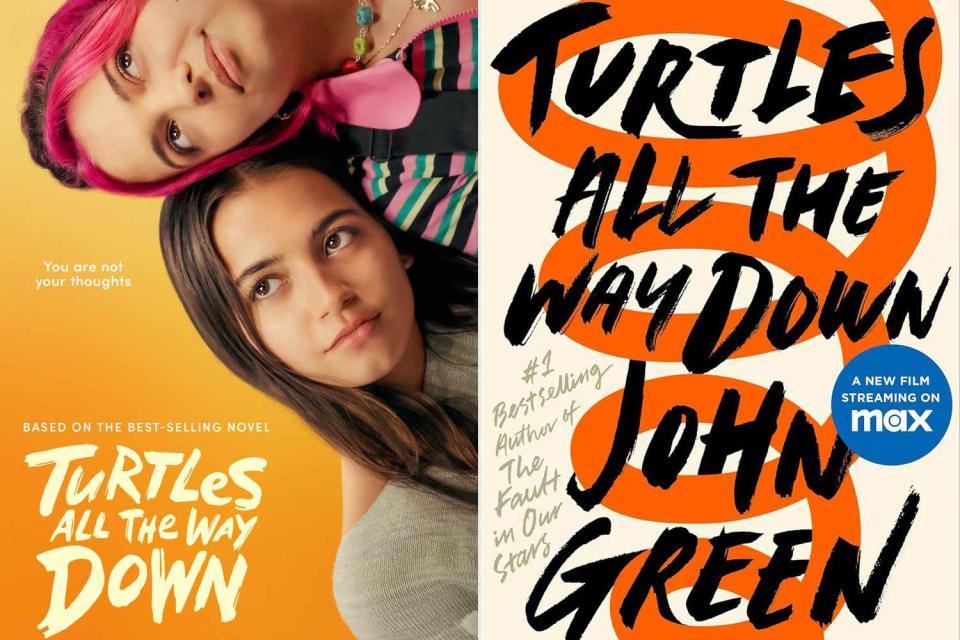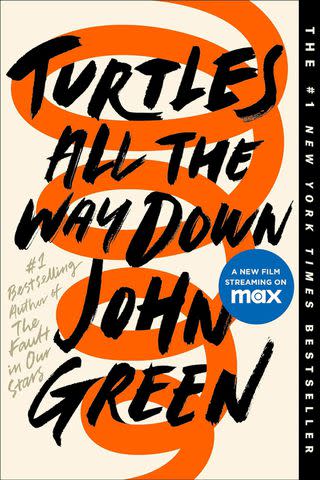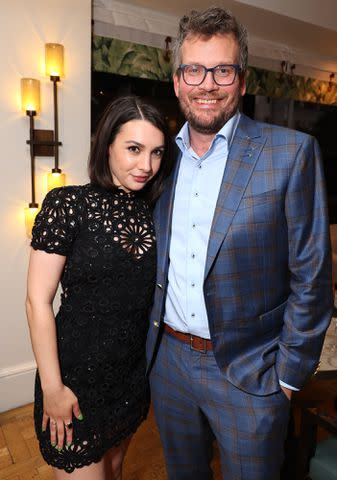John Green's “Turtles All the Way Down” Movie Is a Love Letter to Friendship (Exclusive)
"You don't have to have OCD to connect to this movie," says director Hannah Marks about the new Max film, out May 2

Max; Amazon
Turtles All the Way DownJohn Green didn’t want just any director to take on the movie adaptation of his bestselling young adult novel Turtles All the Way Down. And as a longtime fan of his books, director Hannah Marks “didn’t want to let John Green down,” she tells PEOPLE. “If nothing else, even if I didn't get the job, I wanted him to like me.”
But Marks had nothing to worry about. “She made this two-minute video that depicted thought spirals and depicted the feeling of intrusive thoughts in such a vivid and visceral way that I knew we were going to be okay,” Green says.
“With Turtles, especially the people who really love it, it’s a very important part of feeling heard, feeling understood in their own mental health journeys,” the author continues. “I wanted to respect that and be conscious of that and so I was a little reluctant to turn it into a movie, precisely because I know how much it means to the people who love it. I would never wanna wanna betray that.”

Amazon
'Turtles All the Way Down' book coverThe movie adaptation, which came out on Max on May 2, is an adaptation of Green’s 2019 novel that follows best friends Aza and Daisy on a journey that feels familiar to many of the author’s fans, Marks included.
“[Turtles] was the first time I had read a lot of my own feelings,” Marks says. “I specifically think about the fight that Aza and Daisy have where Daisy shows her perspective on having a best friend that struggles with her mental health, and I've just never seen that before. I I feel like I've been on both sides of that conversation, and I can really relate to Aza, of course, but also to Daisy and Gina, Aza's mom.”
That, Marks says, has been one of the most rewarding parts of the project: Learning and growing with the characters as they come to life, and finding new elements of them to relate to along the way.
An honest, realistic portrayal of Obsessive Compulsive Disorder and the intrusive thoughts that can be debilitating for those living with the illness, has made the book beloved among teens, their parents and mental health professionals looking for a way to show their patients that mental illness doesn’t mean a smaller life.
Related: Scheana Shay Says OCD Is a 'Battle Every Day in My Brain' (Exclusive)
“I live with serious mental illness and have, since I was a little kid, and I also have a good life, and those things are not mutually exclusive,” Green says. “I have a really wonderful full life, and there are times when I'm so sick that it's debilitating. Both those things can be true. And it's really important for me personally to remind myself of that. But it's also important for people to hear it.”
As the book comes to life onscreen, Green says that the portrayal of OCD was the most important aspect for him to get right.
“So often, OCD has been misrepresented in media, as either romanticized as being accompanied by superpowers, or else stigmatized by being being presented as this freakish behavior and look at this freakish person who can't stop engaging in it,” he explains. “And I was really worried about that, because Hollywood can struggle, at times, with complexity.”
Fortunately, Marks and Green were on the same page from the start.

Eric Charbonneau/Getty Images
Hannah Marks and John Green at the Los Angeles screening of the film.“It turns out I didn't need to be worried about it because Hannah understood very deeply what I was trying to do in the book, and how to make that come to life in a visual form,” Green adds.
And while the movie does portray mental illness, it’s not “a movie that felt like homework, or a PSA or an afterschool special,” Marks explains. “You don't have to have OCD to connect to this movie. And that's a huge part of what I love about it. Everyone has mental health. And hopefully, everyone can connect to these characters and see these characters within themselves.”
When asked what elements of the book carried over into the film and what got left on the cutting-room floor, both Marks and Green agreed that they wanted to keep the power of friendship front and center.
Related: The Idea of You: The Biggest Differences Between the Book and Movie Starring Anne Hathaway
"There's a line in the book, actually, that's not in the movie. But it doesn't need to be in the movie, because Hannah just made the line into a movie which is, ‘I thought my life was going to be a romance novel, but it turns out I was in a buddy comedy all along,’ " Green says. “Ultimately, it's a movie about the power of love between best friends, which I just don't think we see enough of. Those best friend relationships can be just as central to a human life as romantic relationships.”
Both Green and Marks hope the movie finds its fans, just like the book did, and that they watch it in community with people they love.
“I hope that they will feel from it what I what I felt from it when I when I first watched it, and what I've felt every time I've watched it since,” Green says. “Which is known and loved.”
For more People news, make sure to sign up for our newsletter!
Read the original article on People.


